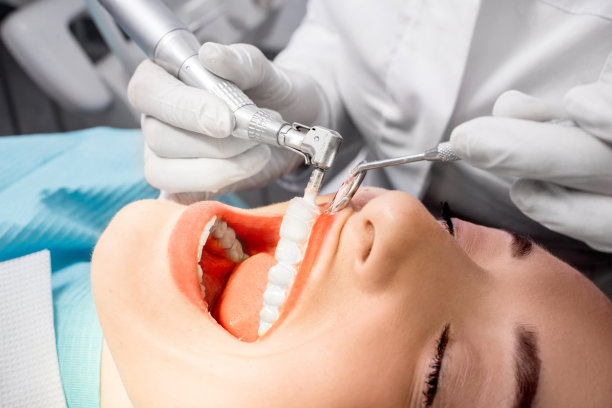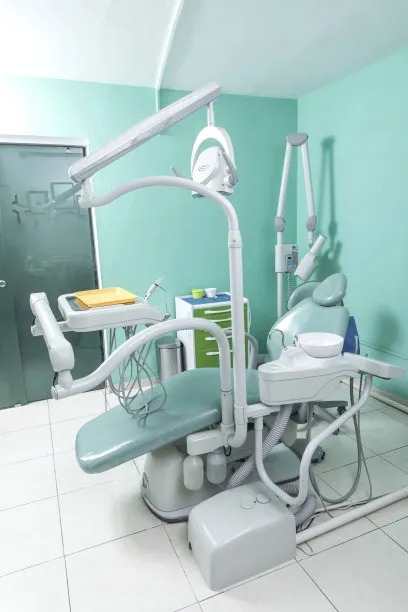Summary: Extracting a tooth can be a necessary procedure for maintaining dental health, yet it requires proper techniques and post-operative care to ensure successful outcomes. This article explores four key aspects of tooth extraction: the significance of professional skills, the importance of appropriate tools, the role of aftercare in recovery, and the potential complications of neglecting these factors. Each section provides detailed insights into how meticulous attention to technique and aftercare can prevent complications and promote overall dental wellness. By understanding these essential elements, patients can make informed decisions and enhance their oral health following a tooth extraction.
1. The Significance of Professional Skills

When it comes to tooth extraction, professional dental skills are paramount. A trained dentist possesses the knowledge and experience necessary to determine the best approach for each individual case. Dentists are trained to assess oral health and identify complications that may arise during extraction, ensuring a tailored procedure for each patient.
Moreover, a skilled dentist can minimize discomfort and reduce complications during the extraction process. Their expertise allows them to perform the procedure efficiently, which can substantially lower the risk of infection or damage to surrounding tissues.
Additionally, professional skills extend beyond the extraction itself. A qualified dentist can provide essential recommendations for aftercare, ensuring the healing process starts on the right foot. Good practice in this initial phase can lead to better long-term outcomes for patients.
2. The Importance of Appropriate Tools
The tools used during tooth extraction play a critical role in the process. Dentists rely on specialized instruments designed for safety and efficacy, such as forceps and elevators. These tools allow for precise maneuvering and extraction, reducing trauma to surrounding teeth and gum tissue.
Using appropriate tools also contributes to better patient comfort. Efficient extraction minimizes the time the patient spends in discomfort during the procedure. Dentists who utilize well-maintained and suitable instruments can perform extractions more smoothly, making the experience less daunting for the patient.
Furthermore, advancements in dental technology have introduced innovative tools that enhance procedures. For example, some modern techniques use laser technology, which can minimize bleeding and speed up recovery. Understanding the significance of using the right tools helps emphasize the role of professional dental care in maintaining oral health.
3. The Role of Aftercare in Recovery
Post-extraction aftercare is crucial for a smooth recovery and involves following specific instructions provided by the dentist. Patients must understand the importance of keeping the extraction site clean to prevent infection. Adequate attention to oral hygiene practices following a tooth extraction can mitigate complications.
In addition to hygiene, patients should be aware of dietary recommendations during the healing process. Soft foods and adequate hydration are encouraged to aid recovery without irritating the extraction site. Ignoring these dietary guidelines can lead to unnecessary pain and extended healing times.
Furthermore, follow-up appointments with the dentist are essential. These visits allow for monitoring the healing process and addressing any concerns. Establishing a strong aftercare routine helps ensure that patients experience a hassle-free recovery, reinforcing the critical link between aftercare and dental health.
4. Potential Complications of Neglecting Proper Practices
Neglecting proper techniques during tooth extraction and aftercare can lead to significant complications. One common issue is dry socket, which can occur when the blood clot that forms at the extraction site dislodges or dissolves before healing. This condition can result in severe pain and delays in the healing process.
Additionally, improper post-operative care can lead to infections, which may require further medical intervention. Bacterial infections can compromise overall health and lead to more severe dental issues if not managed promptly.
Moreover, anxiety and fear associated with dental procedures can be exacerbated if patients do not feel adequately informed about the importance of the extraction process and aftercare. Addressing these concerns through clear communication and patient education can enhance trust and improve outcomes.
Summary:
In conclusion, the extraction of a tooth is a significant dental procedure that demands proper techniques and diligent aftercare. From the importance of professional skills and appropriate tools to the critical role of aftercare and the ramifications of neglecting best practices, each element plays a pivotal role in determining the overall success of the extraction process and the patients dental health. Understanding these aspects empowers patients to engage proactively in their oral health journey and ensure the best possible outcomes following tooth extraction.
This article is compiled by Vickong Dental and the content is for reference only.
Vickong Dental
Vickong Dental is a large medical group established in Hong Kong in 2008 by professors from well-known medical universities in Guangdong and Hong Kong, as well as medical doctors from key national '985' universities (including Master's supervisors and senior professors). The chain of branches brings together expert dentists with PhDs and Master's degrees from Hong Kong and Mainland China, committed to providing high-quality dental treatment.
"Vickong Dental Practices the University Motto of 'Healing and Serving Society,' with a Stable Operation for Sixteen Years. It Has Been honored with Hong Kong Enterprise Leaders's Choice,' and is a Global Trusted Implant Center for the Nobel Implant System. Recommended by Hong Kong Metro Broadcast and Guangdong Television, it Serves Customers from Over Thirty Countries and Regions, Gaining the Trust and Favor of Citizens from the Guangdong-Hong Kong-Macau Greater Bay Area and Surrounding Cities.

Thousands of customers' unanimous praise
The most recognized and highly recommended dental service by customers in the Guangdong-Hong Kong-Macau Greater Bay Area
We Ensure You Receive Detailed Care and Attention Here
Hong Kong standards, Shenzhen prices, Your Trusted English-speaking dentists

Vickong Dental Medical-Grade Instrument Disinfection Process
Vickong Dental Medical-Grade Instrument Disinfection Process

Vickong Dental Chain: A Warm and Comfortable Environment for Treatment






Appointment Hours

Q&A
Why choose Vickong Dental?
Vickong Dental practices the university motto 「Medicine to Benefit Society」, with each branch bringing together highly qualified dentists with doctoral and master’s degrees from Hong Kong and the Mainland, and has maintained seventeen years of steady operation。Recipient of 「2024 Hong Kong Enterprise Leaders Brand」, 「2025 Hong Kong Enterprise Leaders Brand」, a Nobel Biocare Global Trusted Implant Center, and a brand recommended by Metro Radio Hong Kong and Guangdong TV。
To date, we have served customers from more than thirty countries and regions,earning exceptionally high word-of-mouth recognition and trusted recommendations from residents across the Guangdong-Hong Kong-Macao Greater Bay Area and surrounding cities
We have eight major branches in Zhuhai、Shenzhen,and a consultation and service assurance center in Hong Kong,so you can book a free consultation at any time for any questions,which is very reassuring.
If I do not accept the quotation after the CT scan, will I be charged??
No! As long as the actual treatment has not started, you will not be charged any fees.
Will there be any additional charges during the treatment process?
No, there won’t be any additional charges. Before treatment begins, we will clearly explain the treatment plan and its corresponding fees. Only after the patient agrees and signs the consent form will we proceed with the dental service.
Can I pay in Hong Kong dollars?
Yes. Vickong Dental accepts payment in Hong Kong dollars. The amount will be converted based on the exchange rate of the day, and the applicable rate will be clearly communicated to you in advance.
Can I reschedule my appointment at any time?
Yes. Please contact us via **WeChat** or **WhatsApp** as early as possible, providing your original appointment time and details, along with your preferred new date and time slot for rescheduling.













